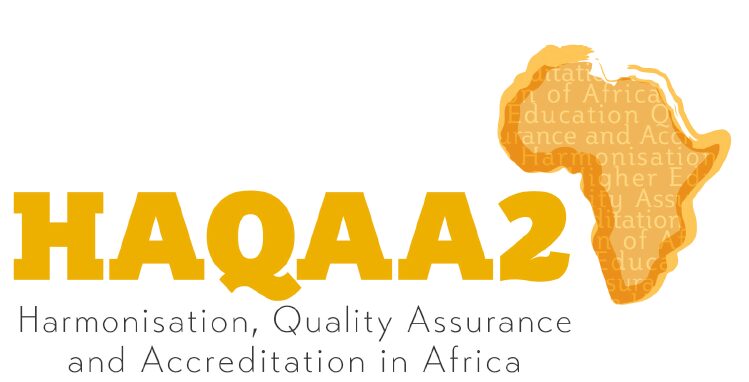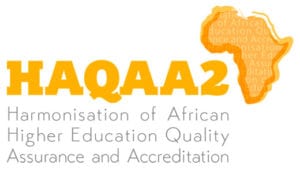
OBREAL Global
Project Synergies in Africa
OBREAL Global, the Coordinator of the HAQAA2 Implementing Team, is an association committed to South-South-North cooperation in the higher education and research sectors. It works with partners across the globe on topics such as university research management, internationalization and modularization or curricula, mobility management, regional Integration in higher education, quality assurance, online learning platforms and innovation policies. OBREAL Global has recently established ‘Chapters’ in South America, Central America, the Caribbean, India, Africa and Europe, which define regional agendas and projects and also meet regularly though and inter-Chapter Board.
In the context of HAQAA2, OBREAL Global, in addition to providing cross-cutting support for all HAQAA2 activities, is co-coordinating the Policy Component of the initiative with AAU. This will entail a number of activities which are being put at the service of the Continental Higher Education Strategy for Africa (CESA): (i) a CESA HigherEducationPolicyPaper Seriesonkeyhighereducationtopics, overseenby INHEA, theco-coordinatorofthe CESA HigherEducation Cluster; (ii) a ComparativeStudyRegional Integration in HigherEducation; (iii) TrainingandDevelopment for AfricanHigherEducationpolicymakers; (iv) Enhanced Data Collection for African HE PolicyAnalysis, embodiedby a newPolicy Data Unitthatwillbehousedbythe AAU.
OBREAL Global is also seeking to maximize synergise between different initiatives and projects in Africa, so as to enhance their impact. This January, it is launching the following EU funded projects with African partners:
PRICNAC: OBREAL Global has partnered with The AgenceUniversitaire de la Francophone (AUF), Conseil Africain et Malgache pour l’enseignementsupérieur (CAMES), Association of African Universities (AAU) and Réseau des experts enIngénierie de formation de l’Afrique Centrale et des Grands Lacs (REIFAC) on a 4-year project funded through the European Commission ACP Innovation Fund on a Promotion de la Recherche, l’Innovation et la Culture Numérique en Afrique Centrale (PRICNAC). This project that will cover central Africa countries: Afrique centrale, Cameroun, République, Centrafricaine (RCA),Tchad, Congo, République, Démocratique du Congo (RDC),Guinée, Équatoriale, Gabon, Sao Tomé et Principe. It aims to strengthen research-innovation capacities in Central African countries through the consolidation of innovation ecosystems, productive synergies, entrepreneurship, digital and innovation policies for sustainable development and poverty reduction. It will address the societal challenges of these countries by creating a PRICNAC network that should strengthen the links between the different actors of innovation in Central Africa; linking research-innovation systems in Central Africa with those of the entire African continent, as well as with Europe and other developing regions in the world, and sharing good practices in promoting employability and inclusive entrepreneurship for the youth. It is funded by the ACP Innovation Fund.
HERE SA: OBREAL Global has partnered with THENSA to establish a network of Higher Education Reform Experts to support the governance, strategic planning and management of HEI in South Africa, so as to shape institutional and also national HE strategies for teaching and learning, in response to changing labour market and societal needs. The project will empower South African technical universities to devise and revise strategic plans for the development of innovative curricula that integrate, 1) competence-based learning (CBL), 2) work-integrated learning (WIL) and 3) entrepreneurship education. It will also consolidate a sustainable network of leadership-endorsed higher education reform experts (HERE SA) in South African universities that will be agents for change, guiding the strategy development process. The project is funded by the Erasmus+ Capacity Building programme for Higher Education.
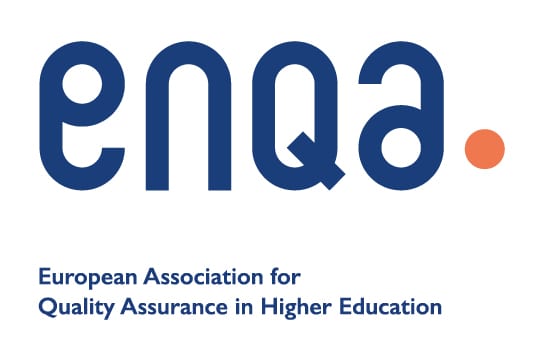
ENQA
Opportunities for agency reviews announced
In addition to supporting the work of the Task Force (see here for further details), ENQA’s recent work for the HAQAA2 Initiative has been preparing to coordinate the implementation of external reviews and consultancy visits to quality assurance agencies and ministries to support their implementation of the ASG-QA. Following a call in the summer, eight agencies and ministries have registered to participate in 2021.
Some adjustments to the methodology have been made following feedback from the agencies and ministries that took part in the HAQAA1 reviews in 2018. In addition, there will be an enhanced focus on the policy context. During the site visits, time will be reserved for policy round-table discussions with relevant stakeholders in order to explore further how the external quality assurance framework fits into the broader national higher education framework.
Furthermore, a follow-up workshop will be held in 2022 to bring together all agencies and ministries that participated in the exercise. The purpose of the workshop will be to discuss common challenges and trends across the reviews, explore how to address the recommendations given in the reports, and reflect on how the national developments align with the continental higher education strategy and PAQAF.
Applications for agency reviews and consultancy visits are still being accepted. Please contact Anna Gover for further information.
In the European policy arena, ENQA has contributed to the Ministerial Conference of the European Higher Education Area (EHEA), which convenes every few years to take stock of recent progress and discuss the future development of the EHEA. In its message to the Ministers, and in the intervention of the President during the conference, ENQA urged Ministers to ensure that their national frameworks allow quality assurance agencies to work independently, flexibly, transparently and to facilitate the full involvement of students. ENQA sees that finding the balance between adherence to a common set of standards for quality assurance and allowing for flexibility and innovation will be an important issue in the EHEA in the coming years.
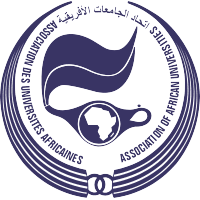
AAU
Updates on the AQRM
The Association of African Universities (AAU), as one of the Harmonisation of African Higher Education Quality Assurance and Accreditation (HAQAA2) Initiative Implementing Team members, has been involved in a number of activities over the past 5 months from July to date. One of the main activities was to assess the resilience of the online African Quality Rating Mechanism (AQRM) system through a pilot test. This was followed by the engagement of a competitively selected and experienced ICT firm to undertake a comprehensive AQRM Technical Audit designed to make the system secure, robust, user-friendly, resilient and able to withstand huge data traffic. One of the key recommendations of the audit company was that AAU should develop a new AQRM system that will ensure more flexibility, address data integrity issues, improve user experience, and guarantee security for the user. Based upon this recommendation, preliminary activities and documentation have been completed for the development of a new AQRM system, which is expected to be completed within a period of three months. African higher education institutions will have the opportunity to use the AQRM in 2021. A selected number of HEI will also be able to receive feedback on their self-assessment via and international expert panel, which will be conducting virtual verification visits.
In addition to further developing and improving the AQRM as an African tool for institutional self-assessment, the AAU continues to disseminate the African Standards and Guidelines (ASG-QA), another important and complementary tool of the Pan-African Quality Assurance and Accreditation Framework, through the AAU website, quality assurance virtual workshops and other events.
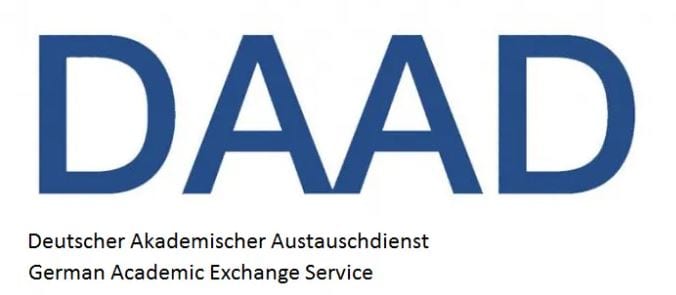
DAAD
Updates from DAAD: EQA and IQA training beyond and in synergy with HAQAA2
As part of the Training Component of HAQAA2, the German Academic Exchange Service (DAAD) and strategic regional partners in Africa (NAQAAE, CNAQ, ANAQ-Sup, CAMES, SARUA, IUCEA)are currently implementing a continental African training course on “IQA-4-Africa – From Pan-African Policy to Practice”, which is delivered in four cohorts. Cohort one (East Africa) completed their training week in December 2020 and Cohort 2, targeting francophone Africa, will undergo training in February 2021. In addition, DAAD continues to support quality assurance capacity development across Africa with other partners:
External Quality Assurance (EQA) in higher education for SADC countries
Focusing on External Quality Assurance (EQA) in higher education, UNESCO-IIEP, DAAD, and the Southern African Quality Assurance Network (SAQAN) have formed a partnership to jointly organize two blended-learning courses for selected countries in the SADC region. The objective of the joint initiative is to develop capacities of higher education officials to design and implement quality assurance systems or improve existing ones, in line with international good practices. The training builds on four online modules developed by UNESCO-IIEP followed by an online– seminar series enabling the participants to further develop group action plans and exchange experiences with other groups. The first blended-learning course was offered for national teams from Angola, Botswana, Lesotho, Malawi, Mauritius and South Africa and has been completed with a face-to-face meeting organised by the DAAD in 2019 in Gaborone, Botswana. The second cohort currently involves QA professionals from Eswatini, Mozambique, Namibia, Seychelles, Zambia and Zimbabwe. The final online seminars will be held in December 2020, organised by the DAAD.
TrainIQA for the SADC region: Launching 2020-2021
The German Academic Exchange Service (DAAD) and the University of Potsdam (UP),Centre for Quality Development, are preparing for the “Training on Internal Quality Assurance – TrainIQA”, a multi-part training course which supports Higher Education Institutions (HEIs) to set up effective and sustainable quality assurance (QA) structures at institutional level. The course will be offered in Africa and Southeast Asia, targets primarily QA officers but engages university leadership as well. Five core modules which combine leadership and management topics are being delivered and discussed among participants in a series of workshops and conferences as well as online. The first two trainings were conducted online in October2020 (South East Asia, in close cooperation with regional partners AQAN, AUN, SEAMEO RHIED, ENQA) and November 2020 (SADC region, in close cooperation with the Southern African Regional Universities Association, SARUA).In 2021 a third cohort for francophone African countries will be launched.
The SADC course forms part of DAAD’s engagement in Southern Africa aiming at strengthening capacities in EQA and IQA, starting with a policy seminar in Pretoria, South Africa (10/2017) and drawing also back on the results of a Study on “Regional Quality Assurance in Southern Africa (SADC)”published in 2018. All activities are implemented in the frame of the DIES programme (Dialogue on Innovative Higher Education Strategies), an initiative which is jointly coordinated by the DAAD and the German Rectors’ Conference (HRK) and funded by the German Ministry for Economic Cooperation and Development.
Call for ProGRANT 2021 in Western Africa.
The University of Cologne has published the next call for the DIES training course for proposal writing, called ProGRANT.The aim of DIES ProGRANT is to train younger researchers and young PhD holders in developing a promising proposal for national or internationalresearch funding. Until January 31st, 2021, 11 pm researchers from all disciplines can apply for this course.
The course will be open to younger researchers and PhD-holders from Togo, Benin, Burkina Faso and Ivory Coast.
Please check the following website:
https://portal.uni-koeln.de/international/im-fokus/dies-progrant
